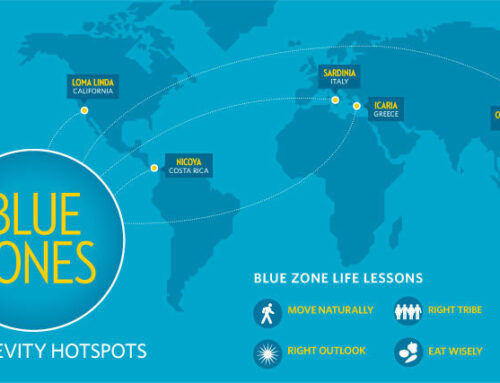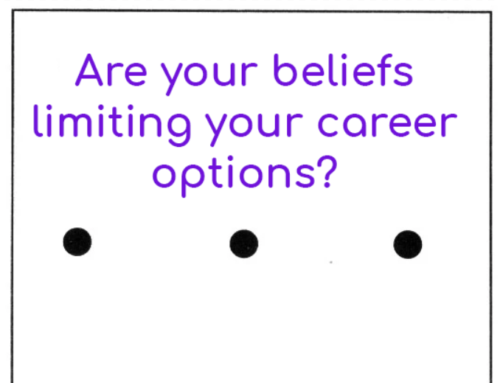Have you sometimes thought what it would be like to work with a Life or Career Coach, and wondered what questions you would love to ask her or him?
Often people who are thinking of hiring a career coach are at a crossroads in life, where their current career trajectory somehow doesn’t feel right. In my experience, this is often the case for ambitious, driven people, who have worked hard in a particular field. Now they realise that they feel stuck and really don’t care about the work they’re doing.
This causes them to feel stressed and drained of energy. Because this situation has usually gone on for years, this might also have affected their personal lives, their self-esteem and the harmony in their family. Suddenly they’re at a point where they don’t even know what exactly the problem is, or how to fix it. Someone close to them, perhaps a doctor or a relative, might suggest they seek out a Life or Career Coach.
Have you been in this situation, or do you know someone who has?
You might have played with the idea, but hesitated because you have no idea how coaching works, and how to make sure you find a really great coach.
I know many of my clients spent a lot of time in this phase, before they took action and decided to finally have that first conversation with a potential Life or Career Coach. This is why I have put together a list of what I believe are the most important questions and considerations to address in the preliminary Discovery Call with the coach, before you decide to hire them.
Hiring a coach is a big decision after all, and one that has the potential to majorly influence the happiness, balance and sense of fulfilment you will experience in your future life and career.
Here are my top 9 questions:
- Chemistry
Admittedly, this isn’t a question that can be asked, but I believe it is THE most important factor to consider in your decision. In the same way as most people wouldn’t advise you to enter into a business agreement with someone where you have a feeling that something isn’t quite right.
Chemistry with your coach is super important because coaching requires you to be open, honest and committed to the process. The coach is asking questions that can sometimes be perceived as quite direct, so if you feel uneasy about the relationship, this directness and curiosity will be felt by you as intrusive and potentially offensive So whatever you do, don’t choose one coach over another just because their fee is less, they live closer to you or due to some other practical aspect. Choose your coach based on your instinct telling you that it feels right.
- Have you worked with people similar to me?
This should be one of your top questions. Ask the coach whether she or he has worked with anyone in a similar situation, from a similar career background, or anything else you feel really characterizes you and your situation. I believe this is a more important question than merely how generally experienced the coach is.
A coach doesn’t need to know anything about your sector or industry, in fact it is better if the coach doesn’t know a lot, as this means she or he is more broad-minded and intuitive. But it is still an advantage if the coach has worked with people that share commonalities with you, as it is an indication that the coach is more likely to appreciate your mindset. By mindset I mean the things you say but mean differently, as well as your deep-rooted thinking patterns.
- Can you show me testimonials from past clients?
This question is linked to the previous question about having worked with similar clients, but the difference is that the testimonials blatantly demonstrate that the coach has been doing a great job with her or his past clients.
Given the obvious sensitive nature of coaching, not all clients feel comfortable publicising their full names and their picture online, so you can’t always rely on this. But if you are able to read success stories with names and pictures, that gives a lot of credibility and trustworthiness to the coach.
- How much are your fees?
It can be hard to work out in money terms what you believe life and career coaching is worth to you. After all, how do you put a price on your future feelings of fulfilment, clarity and happiness and? Nonetheless, if you have limited savings and are afraid you can’t pay next months’ rent, you obviously need to consider the price.
Some coaches are happy for you to pay by the session, which means you can test it out and make a decision to continue if the first sessions was great. That being said, most of the best coaches I know don’t work on those terms, the reason being that you won’t experience any amazing transformation after one session only.
Coaching is a process that takes time, and the work and progress that goes on in your mind happens at unknown times and places. These moments also often don’t occur during the actual session, but in between sessions, when you’re going about your daily life, without noticing that your mind is working in the background.
So keep this in mind when assessing a coach, but make sure you can realistically afford her or him, without having to break the bank.
- Where do the coaching sessions take place?
Some coaches only work face to face, some on the phone/ Skype/ Zoom, and some do a mix. Make sure you select a coach who works in the way that suits you. Some people get much more value from sitting down with a person face to face, as they feel a disconnect when the coaching happens over the phone.
Others simply don’t have the time to add that extra travel time to their busy schedules, or they live remote, so much prefer the coaching to happen over the phone. Have a think about what suits you and your lifestyle.

- How long and how time consuming is the coaching programme?
Some coaches are happy to offer you ad hoc sessions, whereas many only offer a package of a set number of sessions. Packages can wary from 6, 9 or more sessions, but what they have in common is that there is a start and an end goal in mind.
As per the guidelines of the International Coach Federation (ICF) a coaching programme should always be centered around a goal, and have a set goal post in mind. But it’s up to you whether you feel this is right for you.
Other than the length of the programme, try to get an impression of how often the coach suggests to schedule the sessions, and whether there might be any homework between sessions. The programme has to fit your lifestyle and your preferred intensity of working after all.
- What are some of your core life values?
A great coach should always be non-judgmental, non-biased and not tell you explicitly what to do. They should use intuitive listening skills and ask you powerful questions that evoke insight and self-discovery.
These questions will however be influenced by the core beliefs and values that the coach possesses. So if you during the conversation get the feeling that there is a major clash between your values and the coach’s values, then you can expect these values to be reflected in the questions the coach will ask you throughout your coaching programme.
An example is ‘the virtue of relentlessly pushing yourself’ or to always ‘strive to be a winner’. Only you know whether this virtue is at the top of your list, or whether a virtue such as ‘general happiness and balance’ is a closer match.
- Do you have a coach or coach supervisor yourself?
I believe a good coach also has a great coach or coach supervisor. Coaches continuously learn and become better at listening, asking questions and trusting their instinct, but like most other service professions, there is always room for improvement.
As a rule of thumb, a coach should have one session with their supervisor for every 10 sessions they conduct with clients. This allows them to discuss how they could have reacted differently to a difficult situation, and gives them ideas of how they can tackle it better next time.
- What have been the biggest achievements and setbacks in your own life?
This question will tell you something about the coach’s life experience. Experiencing and overcoming obstacles demonstrates that the coach has experienced discomfort, challenge and growth, similarly to what might happen in a coaching situation. This can indicate greater insight and empathy towards you, the client.
Having achieved big personal goals is also a sign that the coach is walking the walk, not just talking the talk. This means they have really pushed and stretched themselves, exactly what they will be expecting of you if you decide to become their client.
These are the top questions you should keep in mind when having the initial Discovery Call with a potential Coach.
If you have any other questions you’d love to know the answers to, just let me know in the comments below 🙂
To your success & happiness,
Christine







Leave A Comment